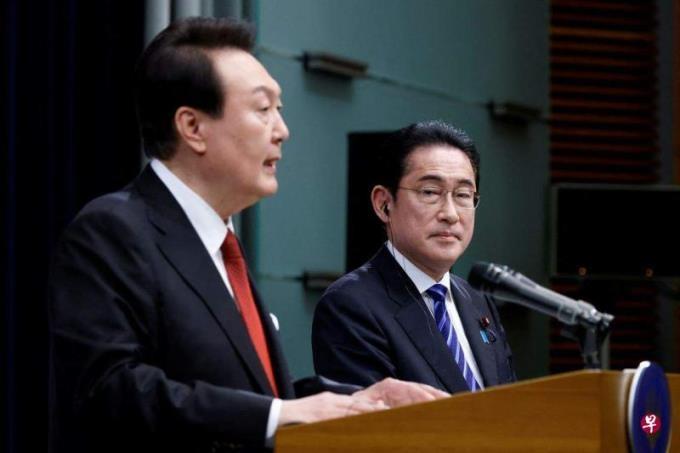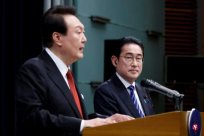
The Japanese Prime Minister Kishita Tianshi will visit Korea on May 7 to hold a head talks with South Korean President Yin Xiyue.South Korean public opinion believes that Yin Xiyue has made a significant concession to Japan on the "World War II Labor Compensation" in March. This time it was Japan's turn to take corresponding measures to look forward to a "visit to South Korea" in Kishida.
South Korea ’s President’ s Office said on the 5th that the Korean -Japan summit talks will discuss issues such as security cooperation and intelligence sharing of North Korean nuclear threats, and cooperation in economic and industrial fields such as semiconductors and social and cultural exchanges.In addition, the sensitive "Fukushima nuclear sewage discharge into the sea" may also be mentioned.
It is reported that leaders of the two countries will hold a joint press conference after holding small -scale meetings and expansion talks.The two parties are considering announced a plan to "establish a common fund for the Youth of Korea and Japan."However, the possibility of issuing the "Korean and Japan Subjects Common Statement" after the meeting is very high.
South Korea's public opinion believes that Yin Xiyue has first proposed a plan to compensate Korean workers in Japan during World War II in the form of "third party compensation".South Korea has been looking forward to the Japanese side's "sincere response".
Zhao Zhenjiu, a professor at the Institute of Far East Issues Research Institute of Qingshangnan University, pointed out that although some people from the Japanese government believe that the Japanese party should actively respond to the Korean solution, the Liberal Democratic Party has put pressure on the Kishida government, emphasizing: "Must must be necessaryPersist in the principle of not apologizing to (South Korea). "
Li Yuande, a professor at the Department of Japanese Studies at the National University of Korea, pointed out that for the sustainable development of the "third -party compensation" plan proposed by South Korea, Japan should also propose a response measure to calm the negative public opinion of South Korea.
South Korea Daily pointed out that Kishida is expected to refer to the joint declaration of Kim Daka and Xiaoyuan in 1998, and inherit the position of previous cabinets, showing sincerity.
Report also believes that the relationship between South Korea and Japan is difficult to completely improve, so some people expect the United States to play the role of "intermediary".
South Korea's President's Office stated that it is of great significance to restore "shuttle diplomacy" with this return visit. Therefore, it is unlikely to directly mention the possibility of apology or reflection on history.



